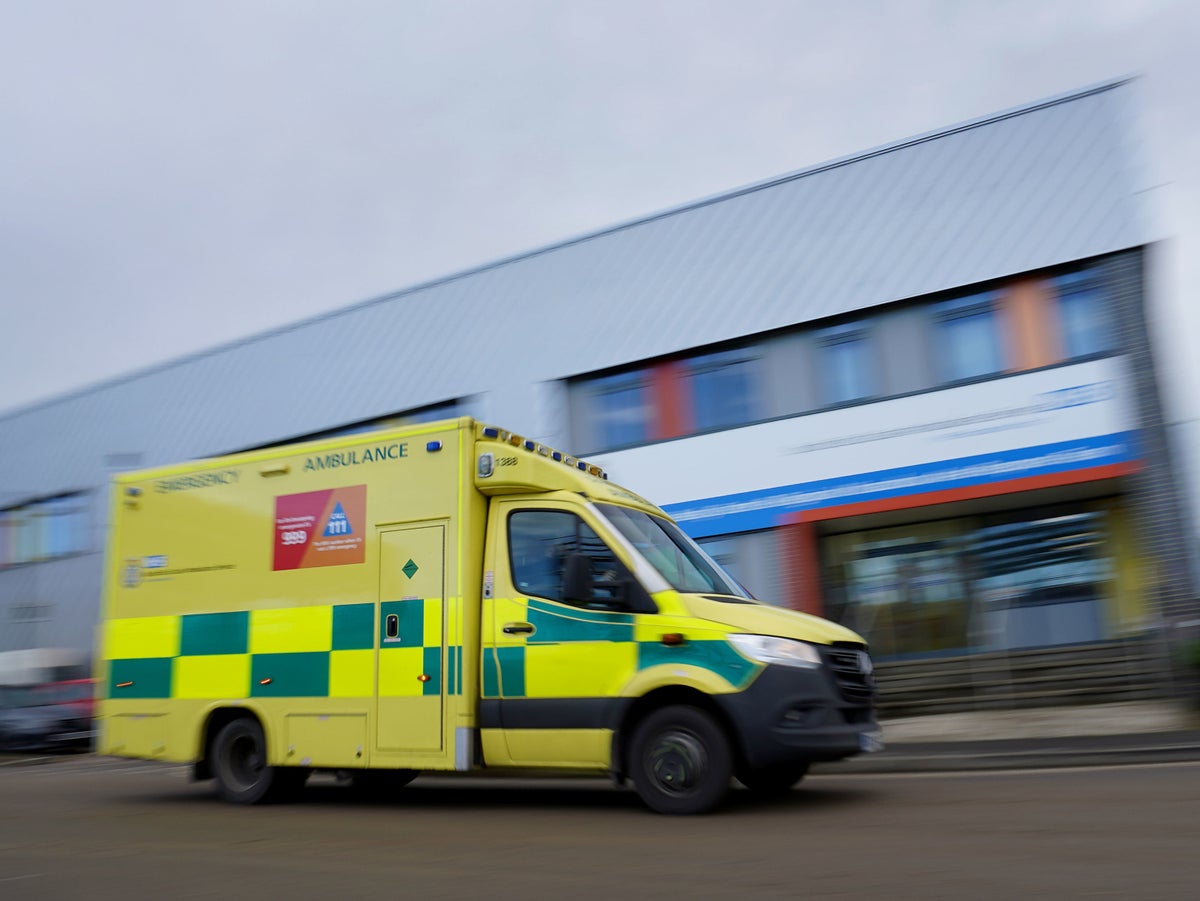
Eight of England’s 10 ambulance services have declared critical incidents, as NHS leaders warned they could not guarantee patient safety in the face of strikes by thousands of paramedics.
Nurses also took industrial action in their thousands on Tuesday, but prime minister Rishi Sunak was warned that health leaders were “particularly concerned” about the impact of strikes by ambulance staff due to walk out the following day.
In declaring critical incidents, ambulance services said they had come under “extreme” and sustained pressure in recent days, blamed in part on huge volumes of emergency 999 calls and delays in handing patients over to hospitals.
London Ambulance Service’s chief paramedic Dr John Martin told MPs on the health and social care committee on Tuesday that paramedics “can spend a whole shift outside hospital waiting to hand over a patient” – warning of the “huge impact” this was having.
Meanwhile, 999 calls are up 50 per cent on this time last year and 111 calls are also 75 higher over the same period, according to the Southwestern Ambulance Service.
North East Ambulance Service said it had declared a critical incident as a result of “significant delays for more than 200 patients waiting for an ambulance, together with a reduction in ambulance crew availability to respond because of delays in handing over patients at the region’s hospitals”.
The ambulance service said declaring a critical incident allows it to instigate several additional measures to protect patient safety.
This includes seeking mutual aid, cancelling all training to allow for the redeployment of all clinical staff, no longer taking bookings for urgent non-emergency transportation and increasing third-party provider provision.
The only services not to have declared such an incident are in the East and West Midlands, while London has declared a “business continuity incident” – effectively reportable as a critical incident – after taking as many as 7,000 daily 999 calls in recent days, compared with around 5,500 on a busy day prior to the pandemic.
It is against this backdrop that thousands of paramedics and other staff are set to strike on Wednesday, prompting Matthew Taylor, chief executive of the NHS Confederation, to write to Mr Sunak, urging the prime minister to “be prepared to negotiate on the substantive issue of pay awards” with unions.
“With less than 24 hours to go to the ambulance strike, there is now deep worry among NHS leaders about the level of harm and risk that could occur to patients tomorrow and beyond,” wrote Mr Taylor.
Speaking later on BBC Radio 4’s Today show, Mr Taylor said: “We never want to alarm people but we have reached the stage where our leaders feel it’s necessary to say they cannot guarantee patient safety, they cannot avoid risks as these strikes unfold.
“We are particularly concerned about the ambulance workers’ strike tomorrow but we’re concerned about the possibility of further strikes.
“We need to make clear that we’re entering into a very dangerous time and this is why we’re upping even more our call to the government and to the trade unions to try to find a way of solving this dispute and helping us get through the winter.”
It came as sources told The Independent that, over the last 48 hours, emergency and urgent care services across the country have been experiencing the highest levels of demand and delays ever seen.
While NHS strikes were not discussed by Mr Sunak’s cabinet on Tuesday, health secretary Steve Barclay met union representatives in the afternoon. However, discussions around pay were off the table as the government sought reassurances over strike cover.
Calls requesting an ambulance are split into categories, with category 1 being the most life-threatening, such as cardiac arrest, while category 2 covers conditions like stroke, heart attack and sepsis.
Unite leader Sharon Graham said unions had agreed to provide cover on Wednesday for life-threatening emergencies (category 1 cases) and serious cases like heart attack and stroke (category 2 cases), adding: “That has been agreed at a host of local NHS trusts.”
Ms Graham accused the government of “misleading the public on this and at worst deliberately scaremongering” through suggestions that many serious calls would have no response.
Mr Sunak has faced calls from several Tory MPs to compromise with striking NHS staff, most recently from party grandee Sir Geoffrey Clifton-Brown, who urged the PM on Tuesday to show some “flexibility” rather than his government “parroting” the decision of the pay review boards.
However, asked for his message to striking NHS staff by MPs on the liaison committee on Tuesday, Mr Sunak said the “best way to help them” was “to reduce inflation as quickly as possible”.







